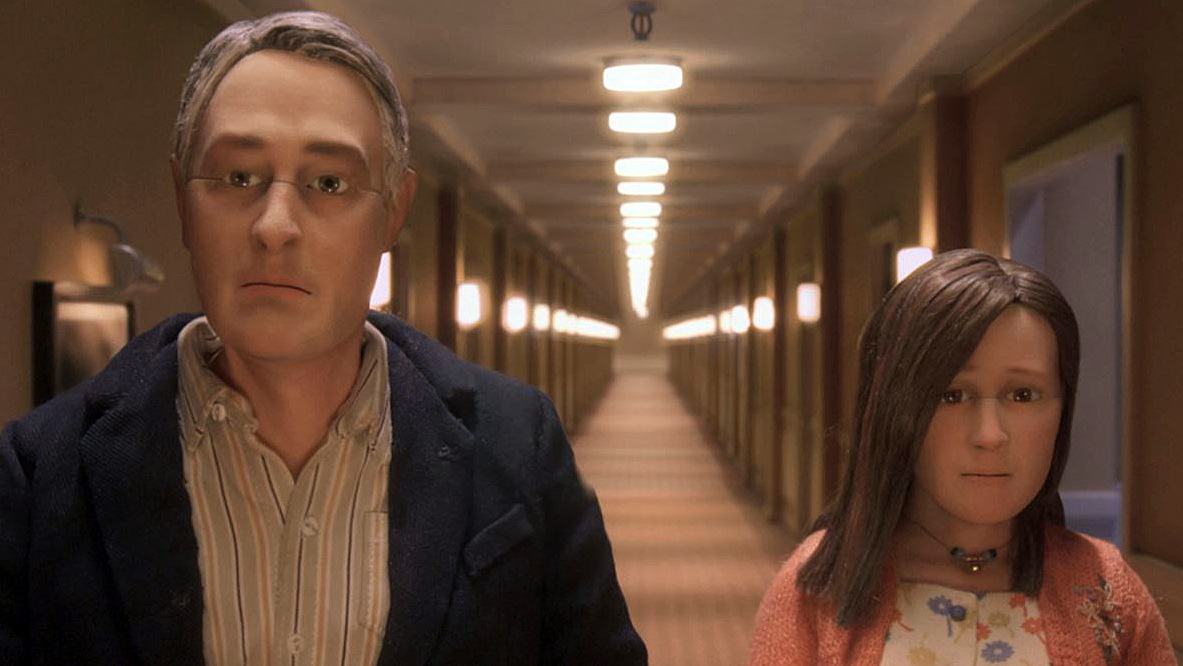Before attending a showing of the German film Phoenix (2014) at the Michigan Theater, I was in a happy state of zero expectations. Brief summaries I read prior highlighted the strange pairing of events, often describing the film as, “A Jewish Holocaust survivor receives facial reconstructive surgery”. And with its title, I half expected a thriller, something fiery and fast paced. Instead, Phoenix proved to be a beautifully painful, and likewise, painfully beautiful, meditation on the female survivor’s experience after WWII, and the suffocating hold of patriarchal oppression which lingered long after “peace” was agreed upon.
The audience meets Nelly Lenz with a bullet-wounded face, masked entirely by bandages and shadows. A survivor of the concentration camps, Nelly returns home to Berlin under the care of her friend Lene. Yet she finds no comfort upon her arrival; her entire family was murdered during the war. And if her identity weren’t already lost with the evaporation of her relatives, it is stripped completely when doctors are unable to reconstruct the exact nuances of her former face. During her healing process, Nelly discovers her long-lost husband, Johnny, who fails to recognize her as she calls his name. The movie follows a disconcerting journey of Johnny to make ‘Esther’, though truly Nelly under the guise of a new face, into a believable copy of his believed-deceased wife, all to collect her sizeable inheritance. Seemingly physically unable to enlighten her husband of her true identity, Johnny’s guided growth of this broken woman back into her former self is anything but restorative.

Though only 98 minutes, it struck me how conscious I was of each passing second. And this palpability of time was not a product of boredom, but instead of extreme empathy the viewer unavoidably feels for Nelly’s intensely cruel and depressive situation. You can feel the suffering in every blank stare of Nelly’s (Nina Hoss) bottomless eyes. She screams her emotion in all that she does not, and cannot, say. More effective than any words or explanations are the prevalent silences and uncluttered shots of Nelly occupying space, even just as she walks frailly within the peeling white plaster apartment that Johnny restricts her to. It is painful to watch the inaction and to be but a helpless viewer. All I desired was to hug Nelly’s sunken soul and envelope her in open arms until she could remember who she was.
The framing of each shot, as people are placed within spaces, uniquely propels forward the depth of suffering of each character. You feel the darkness of the war-torn city when Nelly slinks into the shadows of a brick façade, listening helplessly to a rape around the corner. Later, you witness Nelly nearly glued to a wardrobe mirror in an ornate room full of emptiness. Her cheeks almost nuzzle her own reflection in attempt to understand who lay beneath her unfamiliar face. This is in stark contrast to the heavy handedness of Johnny, who owns the ground he walks on, and pushes and shoves the world, including Nelly, to make way. The film is an artful collection of the most vital nuances, so flawlessly natural and inherent to the bodies and minds of each character that the viewer can’t help but think they, too, are coping with immense loss of family and identity. Emotion is absorbed into every corner, every movement, and every silence.
This tale of self-discovery provides a necessary fresh take on the Holocaust survivor’s post-war experience. So few films address the life of concentration camp victims beyond liberation day. How do you return from years of torture, caked with death, back into a life where capturing a new normal seems unfathomable? Is a home still a home if everyone in it is gone? Phoenix is refreshing in that it, too, asks these questions, and does so without pretending to have clear answers. Instead, these themes are contemplated through complex interactions laden with deceit, violence, loss, and rediscovery.

If anything, this film is a triumph for females, yet it took me until the last scene went black to fully realize. Not only does it completely acknowledge the persistent objectification of women in the shadows of a man’s war, but also the fierce independence and strength inherent in each female. This spirit never truly leaves, even when layers of oppression may smother it. The two friends, Nelly and Lene, are each multifaceted, guarded, and highly intelligent. Lene’s commitment to rejuvenating Nelly, while volunteering for red cross efforts, as well as fighting for the creation of a new, safe, Jewish Palestine is inspiring, even as as her plunging faith in society bottoms out. Nelly, so torn by her husband’s inability to recognize her, yet plagued by desires to be with him, often made me frustrated by what I thought was passivity. But the ending puts Nelly’s underlying courage, patience, and respect for herself bright into daylight. All previous doubts are dismissed, and she becomes the epitome of non-violent love and might — the opposite of a man’s war.
Beautiful, dark, and loud in its silences; Phoenix is an unforgettable study on the human art of resilience.
* * *
Eva Roos is a senior at the University of Michigan, receiving a Major in Art & Design with Minors in Environment and Music.









